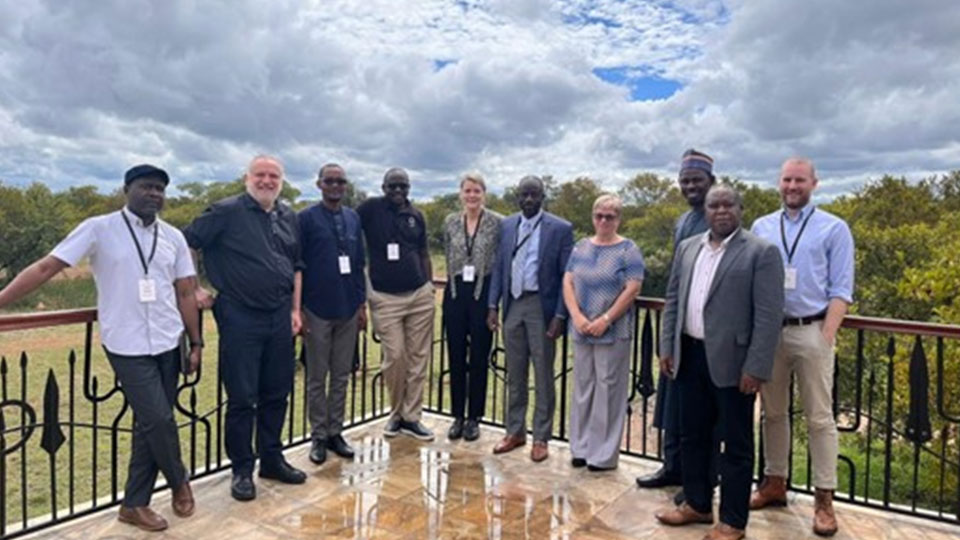The event brought together elected lawmakers and regulators from countries across Africa and South Asia to explore how integrated planning can help direct energy resources effectively and efficiently to where they are needed the most.
The forum involved representatives from the Loughborough-led Modern Energy Cooking Services (MECS) programme, The Climate Parliament (a global network of legislators working to mobilise government action on the climate emergency), and Sustainable Energy for All – which works in partnership with the United Nations (UN) and leaders in government, the private sector, financial institutions and beyond to drive faster action towards the UN’s Sustainable Development Goal for affordable, reliable, sustainable and modern energy for all (SDG7).
Around forty members of parliament and representatives from regulatory bodies from 15 countries, including Nigeria, Zambia, Kenya, India and South Africa, attended the event on 13th and 14th February 2023.
The forum centred on how planning for modern energy can be integrated, inclusive of all sections of society, and provide modern energy cooking on energy efficient devices that don’t harm people or the environment. The ‘SMART cooking’ theme focused on the benefits of applying ‘SMART’ indicators (Specific, Measurable, Achievable, Realistic, Timebound) to the integration of clean cooking in electrification planning.
The presentations and discussions at the forum covered a range of issues, including the emergence of off-grid renewable energy to deliver electric cooking (eCooking), climate finance, and sustainable modern energy cooking services.
Among the sessions held at the event were a keynote speech on SMART cooking by Loughborough University’s Professor Ed Brown, MECS Research Director, and a roundtable discussion, chaired by Alicia Butterfield (MECS Partnership Manager), with sector experts and MPs to explore the steps governments should take to accelerate access to eCooking in their own countries.
Other MECS-led events included a session chaired by Dr Anna Clements and featuring a keynote address by Professor Matthew Leach exploring how carbon and climate finance can open up opportunities to accelerate access to eCooking.
More information on the SMART Cooking forum is available on the MECS website.
About Modern Energy Cooking Services (MECS)
MECS is a seven-year programme funded by UK aid (FCDO) that aims to accelerate the transition in cooking away from biomass to modern energy. By integrating modern energy cooking services into energy planning, MECS hopes to leverage investment in clean electricity access, both grid and off-grid, to address the clean cooking challenge. Modern energy cooking is tier five clean cooking, and therefore MECS also supports new innovations in other relevant cooking fuels such as biogas, LPG (bio) and ethanol, though the evidence points to the viability, cost effectiveness, and user satisfaction that energy efficient electric cooking devices provide. The intended outcome is a market-ready range of innovations (technology and business models) which lead to improved choices of affordable, reliable and sustainable modern energy cooking services for consumers. The goal is to have the MECS principles adopted in the SDG 7 global tracking framework, including integrating access (7.1), renewables (7.2) and energy efficiency (7.3) and promote an informed integrated approach.
The MECS programme is led by the Sustainable Transitions: Energy, Environment and Resilience Centre (STEER Centre), within the School of Social Sciences and Humanities, Loughborough University. It is funded through UKAid as a key Ayrton challenge and guided by the direction of the Ayrton framework.
About Climate Parliament
The Climate Parliament is an international, multi-partisan network of legislators working worldwide to help solve the climate crisis and accelerate the transition to renewable energy.
About Sustainable Energy for All
Sustainable Energy for All is an international organization that works in partnership with the United Nations and leaders in government, the private sector, financial institutions, civil society and philanthropies to drive faster action towards the achievement of Sustainable Development Goal 7 (SDG7) – access to affordable, reliable, sustainable and modern energy for all by 2030 – in line with the Paris Agreement on climate. We work to ensure a clean energy transition that leaves no one behind and brings new opportunities for everyone to fulfil their potential.
